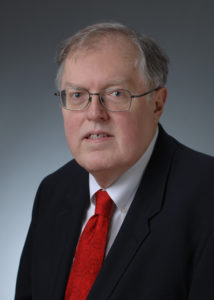
Lewis Gruber, who’s turning 70 this year, says he has no plans on dying.
Well, that’s not entirely true. The biotech entrepreneur has prepared a will. And when pressed on exactly how long he expects to live, he replied calmly, “Something on the order of 120 I wouldn’t think would be out of the realm of possibility.”
Gruber is the co-founder and chief scientific officer of SIWA Therapeutics, a Chicago biotech startup focused on “anti-aging.” The company is developing a drug that aims to cure a variety of aging-related diseases by targeting senescent cells. Senescent cells, sometimes referred to as “zombie cells,” stop dividing and repairing tissue. They can accumulate in the body and feed tumor growth and interfere with the body’s natural ability to repair itself.
SIWA says it has discovered a monoclonal antibody, called SIWA 318H, that selectively binds to and removes both senescent cells and cancer cells. The startup will initially focus its therapy on cancer, specifically pancreatic cancer to start, and believes it has the potential to become the first comprehensive cancer therapy to reduce cancer cells as well as the senescent cells that feed tumor growth.
SIWA, which is currently in the pre-clinical stage, hopes to tackle a range of different cancers and other aging-related diseases, like breast cancer, Alzheimer’s disease, Parkinson’s and ALS.

“We believe we can help just about everyone achieve maximum human lifespan,” Gruber said.
SIWA is among a handful of biotech companies that are pioneering so-called anti-aging drugs. San Francisco–based Unity Biotechnology is also developing drugs that target senescent cells. It has raised more than $300 million in funding and is backed by Jeff Bezos and Peter Thiel. Its focus is on severe osteoarthritis, as well as aging-related diseases of the eyes and lungs.
Alkahest, another Bay Area biotech upstart, is tackling aging diseases like Alzheimer’s, Parkinson’s and dementia.
These companies, along with SIWA, were recently mentioned in the MIT Technology Review’s 10 Breakthrough Technologies of 2020, an annual list of technological advances the publication believes “will make a real difference in solving important problems.” SIWA was named a “key player” in the list’s Anti-Aging Drugs category.
“Biologists are making great progress in identifying some of the processes involved in aging, such as senescence,” David Rotman, the editor at large of the MIT Technology Review, said in a statement. “Targeting these processes is a promising new way to treat the many diseases associated with aging, and now we’re starting to see encouraging results using these approaches.”
In mice tests, SIWA’s therapy was found to significantly increase muscle mass in aging mice, the company says, and it significantly inhibited tumor metastasis in a triple negative metastatic breast cancer with no increase in tumor growth compared to the control group.
SIWA plans to file its first drug application with the FDA within the next 12 to 15 months, and Gruber said he expects to begin clinical trials within the next year. If all goes well, he hopes to have the drug available to the public within the next 5 to 10 years.
“I BELIEVE WE CAN SOLVE AGING BROADLY.”
Gruber is not only creating the drug; he plans to be among its first users.
“I worked on this drug in part for personal interest,” he said. “I intend to take our drug myself when it’s available. I want it to keep me healthy well beyond what’s normally considered old age and into a longer lifespan.”
Founded in 2006, SIWA has raised around $8 million in outside capital to date, which is far less than similar biotech companies on the coasts. Gruber, who previously founded Chicago biotech company Arryx and was the interim CEO of ZelleRX, a biotech company that develops a cell therapy that destroys cancer cells, said SIWA will soon be raising a larger round of funding to support its clinical trials.
“Unlike some companies in our field in Silicon Valley who have hundreds of millions, we’ve done everything very economically,” he said. “That’s somewhat of a hallmark of the biotech companies I’ve worked with before.”
Anti-aging can sound to some like stuff of science fiction, but to Gruber, aging is not simply an inevitable reality, but a problem to be solved.
“I believe we can solve aging broadly,” he said. “Some observers of the aging industry estimate that there are 100,000 people who die of aging-related diseases (a day). I feel personally bad we don’t have our drug available to help as many of those as we can. We may not be able to help every one of them, but certainly a lot of them could be helped by us or another (anti-aging company).”Illustration of cancer cell dividing (CHRISTOPH BURGSTEDT/SCIENCE PHOTO LIBRARY/Getty Images)









